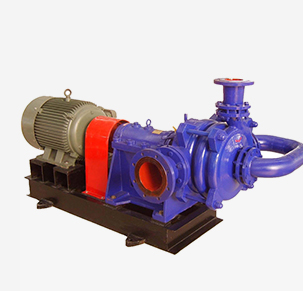English
- Afrikaans
- Albanian
- Amharic
- Arabic
- Armenian
- Azerbaijani
- Basque
- Belarusian
- Bengali
- Bosnian
- Bulgarian
- Catalan
- Cebuano
- Corsican
- Croatian
- Czech
- Danish
- Dutch
- English
- Esperanto
- Estonian
- Finnish
- French
- Frisian
- Galician
- Georgian
- German
- Greek
- Gujarati
- Haitian Creole
- hausa
- hawaiian
- Hebrew
- Hindi
- Miao
- Hungarian
- Icelandic
- igbo
- Indonesian
- irish
- Italian
- Japanese
- Javanese
- Kannada
- kazakh
- Khmer
- Rwandese
- Korean
- Kurdish
- Kyrgyz
- Lao
- Latin
- Latvian
- Lithuanian
- Luxembourgish
- Macedonian
- Malgashi
- Malay
- Malayalam
- Maltese
- Maori
- Marathi
- Mongolian
- Myanmar
- Nepali
- Norwegian
- Norwegian
- Occitan
- Pashto
- Persian
- Polish
- Portuguese
- Punjabi
- Romanian
- Russian
- Samoan
- Scottish Gaelic
- Serbian
- Sesotho
- Shona
- Sindhi
- Sinhala
- Slovak
- Slovenian
- Somali
- Spanish
- Sundanese
- Swahili
- Swedish
- Tagalog
- Tajik
- Tamil
- Tatar
- Telugu
- Thai
- Turkish
- Turkmen
- Ukrainian
- Urdu
- Uighur
- Uzbek
- Vietnamese
- Welsh
- Bantu
- Yiddish
- Yoruba
- Zulu
Telephone: +86 13120555503
Email: frank@cypump.com
Oct . 15, 2024 15:09 Back to list
Exploring the Roles and Uses of Impellers in Various Industries and Applications
Understanding the Functionality and Applications of Impellers
Impellers are critical components in various fluid machinery, playing a vital role in causing fluid movement through rotational energy. They are commonly found in pumps, mixers, compressors, and turbines, and their design directly influences the efficiency and performance of these systems. Understanding how impellers function, as well as their diverse applications, is essential for optimizing fluid dynamics in engineering applications.
Functionality of Impellers
At its core, an impeller works by converting mechanical energy into kinetic energy within a fluid. When an impeller rotates, it exerts force on the surrounding fluid, pushing it outward due to centrifugal force. The specific design and configuration of the impeller blades significantly affect the flow characteristics, pressure production, and overall performance of the system.
Impellers can be classified into several types, including radial, axial, and mixed flow impellers. Radial impellers direct the fluid flow perpendicular to the axis of rotation, making them ideal for applications requiring high pressure. Axial impellers, on the other hand, push the fluid parallel to the axis, which is suitable for applications that demand high flow rates and lower pressure. Mixed flow impellers combine both designs, providing a balance between pressure and flow, thus offering versatile performance.
The materials used for impeller construction are equally important. Common materials include metals, plastics, and composites, with the choice often dictated by the application environment. For instance, corrosive liquids may require stainless steel or specialized alloys to enhance durability, whereas less demanding applications may utilize lightweight plastics.
Applications of Impellers
Impellers are used across a vast range of industries, including water treatment, chemical processing, and aerospace.
understanding the functionality and applications of impeller ...

1. Pumps The most prevalent application of impellers is in centrifugal pumps, where they facilitate the movement of fluids through piping systems. Pump impellers are designed to create a pressure differential, enabling water and other liquids to be transported efficiently. These impellers are widely used in municipal water supply, irrigation systems, and wastewater management.
2. Agitation and Mixing In chemical and pharmaceutical industries, impellers are vital for mixing reagents and maintaining homogeneity in mixtures. Different impeller designs, such as turbine and propeller types, are tailored to achieve specific mixing characteristics, such as shear, turbulence, and flow patterns. The effectiveness of these mixers impacts product quality and production efficiency.
3. Aerodynamics and Marine Applications In aerospace and marine environments, impellers (or propellers) generate thrust for aircraft and vessels. They are designed to maximize lift and minimize drag, ensuring optimal performance under various operating conditions. Understanding the fluid dynamics involved allows engineers to refine designs for improved fuel efficiency and performance.
4. HVAC Systems In heating, ventilation, and air conditioning (HVAC) systems, impellers are used in fans and blowers to circulate air effectively. Their design influences factors such as noise, energy consumption, and airflow rate, making their optimization crucial for energy-efficient building management.
5. Turbines Impellers play a significant role in turbines, converting fluid energy (from water, steam, or air) into mechanical energy. The configuration of turbine impellers is crucial for maximizing energy extraction from the fluid flow, impacting power generation in hydroelectric plants and wind turbines.
Conclusion
The understanding of impeller functionality and its extensive applications highlights its importance in various engineering fields. As technology advances, the design and materials used in impeller construction will continue to evolve, leading to more efficient and effective solutions in fluid management. Mastery of impeller principles allows engineers to design systems that optimize performance, whether in pumping, mixing, or aerodynamics, ultimately contributing to advancements in industry standards and practices. Through innovation and careful design, the future of impeller technology promises to benefit multiple sectors, ensuring enhanced performance and sustainability.
-
Custom Drilling Mud and Slurry Pump Supplier - High Efficiency, Tailored Solutions
NewsJun.10,2025
-
Supply Vertical Submersible Sewage Pump High-Efficiency WQ/QW Pumps Supplier
NewsJun.10,2025
-
Premium Sewage Ejection System & Pumps Efficient Waste Removal
NewsJun.09,2025
-
Premium Wholesale Slurry Pump Impellers Durable & Efficient Slurry Handling
NewsJun.09,2025
-
Top Sewage Pump Companies Durable Industrial Solutions for Efficiency
NewsJun.09,2025
-
Heavy Duty Slurry Pumps - OEM High Performance & Bulk Wholesale
NewsJun.09,2025










